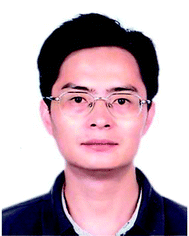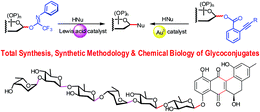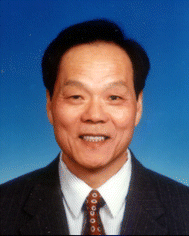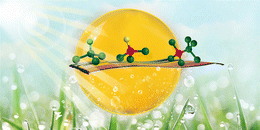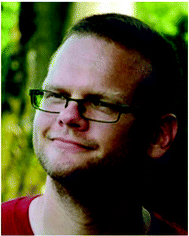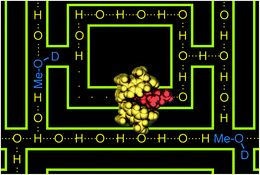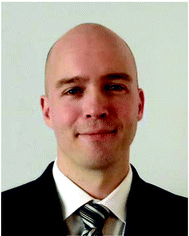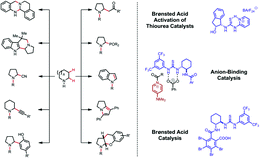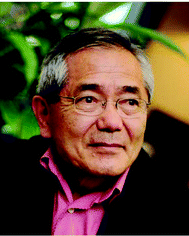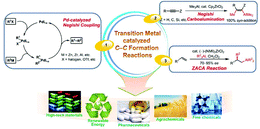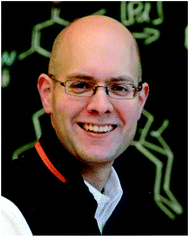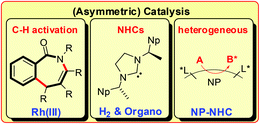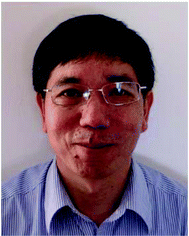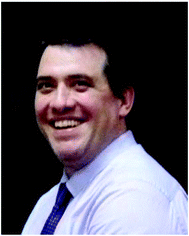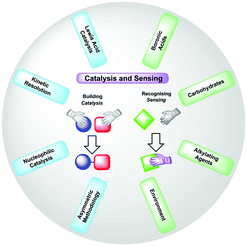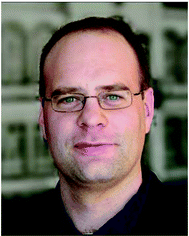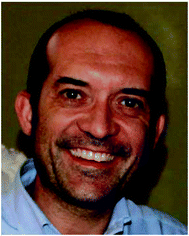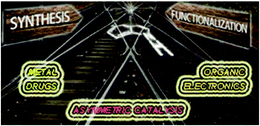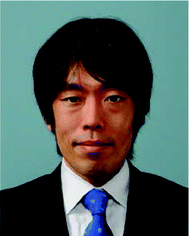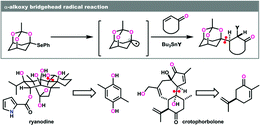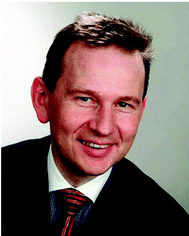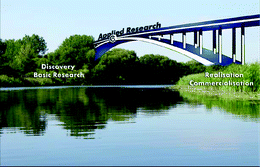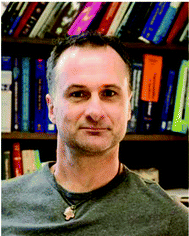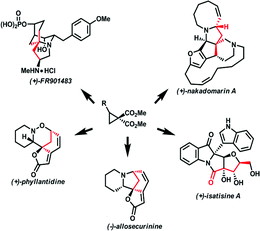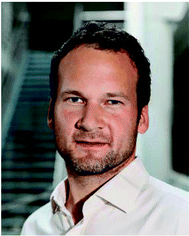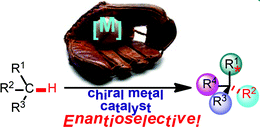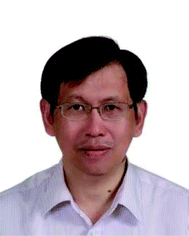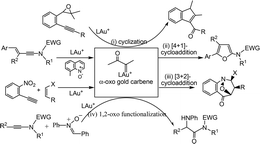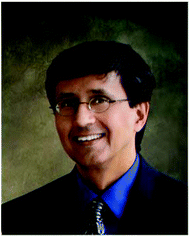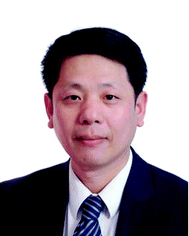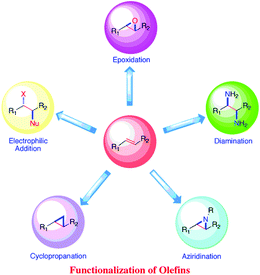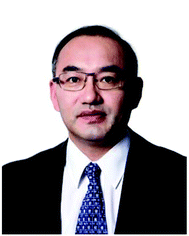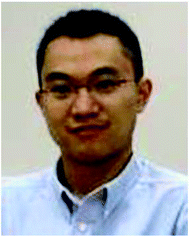Meet the Advisory Board of Organic Chemistry Frontiers
Biao Yu
Biao Yu received a Bachelor of Science in Nuclear Chemistry from Peking University in 1989. He went on to obtain a PhD degree in Organic Chemistry from the Shanghai Institute of Organic Chemistry, CAS. In 1995, Dr Yu moved to New York University to complete one year of postdoctoral training and was then hired as an Assistant Professor and then Professor at the Shanghai Institute of Organic Chemistry, CAS. Professor Yu's research efforts have been focusing on the chemical synthesis of complex glycoconjugates and oligosaccharides (e.g. mammalian glycosaminoglycans and microbial antibiotics) as well as diverse glycosides from plant and marine species. He has authored over 200 papers and 18 patents, and has received a number of awards including the National Natural Science Award (2010), the Lilly Scientific Excellence Award (2012) and the Peony Award for Natural Sciences (2012). In addition, he is Joint Professor at the University of Science & Technology of China, the East China University of Science & Technology and the Shanghai Tech University. He is currently also the Director of the State Key Laboratory of Bioorganic and Natural Products Chemistry and, since 2012, Deputy Director of the Shanghai Institute of Organic Chemistry, CAS.
Representative research
Chen-Ho Tung
Chen-Ho Tung is a full Professor and Member of the Chinese Academy of Sciences. He graduated from the Department of Polymer Chemistry of the University of Science and Technology of China in 1963 and received his Ph.D. from the Department of Chemistry of Columbia University in 1983. He is chiefly engaged in research on organic photochemistry, particularly on photoinduced electron transfer, energy transfer and photochemical conversion in supramolecular assemblies. By using molecular aggregates, cavities and surfaces of microporous solids as “microreactors”, he successfully synthesized large-ring compounds in high yields even at high substrate concentrations. He could direct the photosensitized oxidation of alkenes selectively toward either the singlet oxygen mediated or the superoxide anion mediated products by controlling the status and location of the substrate and sensitizer molecules in the reaction medium. He could photocatalyze hydrogen production from organic and inorganic protic solutions. He is a Board Member of Photochem. and Photobiol., J. Phtochem. Photobiol. C: Photochem. Rev., and J. Phys. Org. Chem.. In 1992, he won the second prize of the CAS Natural Science Award. In 2003, he was granted the award of the Ho Leung Ho Lee Foundation for Scientific and Technological Progress. In 2005, he received the second Prize of the National Natural Science Award. In 2008, he was granted the Asian and Oceanian Photochemistry Association Award. In 2010, he won the Chinese Chemical Society – China Petroleum Chemical Contribution Award.
Representative research
Christoph A. Schalley
Christoph A. Schalley has been a professor of organic chemistry and modular synthesis at the Free University of Berlin since October 2005. He received his PhD under the supervision of Helmut Schwarz at the Technical University of Berlin followed by a postdoctorate appointment with Julius Rebek, Jr. at The Scripps Research Institute in California. In 1999 he joined the University of Bonn as a Liebig Fellow of the Fonds der Chemischen Industrie to start his own independent research group. Professor Schalley has coauthored more than 200 publications and (co-)edited several books on mass spectrometry, dendrimers and template synthesis. He is a recipient of the Dozentenstipendium of the Fonds der Chemischen Industrie (2004) and the Mattauch–Herzog award of the German Society for Mass Spectrometry (2006). His research interests include supramolecular chemistry, surface chemistry, and the mass spectrometric characterization and gas-phase chemistry of supramolecules.
Representative research
Daniel Seidel
Daniel Seidel was born in 1972 in Mühlhausen, Thüringen, Germany. He studied chemistry at the Friedrich Schiller Universität Jena and at the University of Texas at Austin (Diplom 1998). He performed his graduate studies in the laboratory of Prof. Jonathan L. Sessler, obtaining his PhD in 2002. From 2002–2005, he was an Ernst Schering Postdoctoral Fellow in the group of Prof. David A. Evans at Harvard University. He began his independent career at Rutgers University in August 2005, was promoted to Associate Professor in 2011 and to Full Professor in 2014. Research in his group is focused on new concepts for asymmetric catalysis and methods development.
Representative research
Ei-ichi Negishi
Professor Ei-ichi Negishi was awarded the 2010 Nobel Prize in Chemistry for developing palladium-catalyzed cross-coupling reactions in the mid-1970s. Born in 1935, Negishi came to the United States in 1960 after graduating from the University of Tokyo. In 1962, while studying for his doctorate at the University of Pennsylvania, he met Purdue chemistry professor Herbert C. Brown—a pioneer in synthetic organic chemistry. With Brown as a mentor, Negishi arrived in West Lafayette as a postdoctoral researcher in 1966. He then moved to Syracuse University where he served as an assistant professor (1972–76) and associate professor (1976–79). Dr Negishi joined the faculty at Purdue in 1979—the same year Brown was awarded the Nobel Prize in Chemistry—and has been a researcher at Purdue University for more than thirty years. In 1999, he was named the Inaugural Herbert C. Brown Distinguished Professor of Chemistry. Dr Negishi has won many awards, authored several books, and published more than 400 research papers.
Representative research
Frank Glorius
Frank Glorius was educated in chemistry at the Universität Hannover, Stanford University (Prof. Paul A. Wender), Max Planck Institut für Kohlenforschung and Universität Basel (Prof. Andreas Pfaltz), and Harvard University (Prof. David A. Evans). He began his independent research career at the Max Planck Institut für Kohlenforschung (Mentor: Prof. Alois Fürstner) in 2001 and was appointed Associate Prof. at the Philipps Universität Marburg in 2004. Since 2007 he has been a Full Professor of Organic Chemistry at the Westfälische Wilhelms Universität Münster. His research program focuses on the development of new concepts for catalysis and their implementation in organic synthesis. The group is especially interested in the chemistry of N-heterocyclic carbenes (NHCs), C–H activation, asymmetric arene hydrogenation, (asymmetric) NHC organocatalysis, photoredox catalysis, heterogeneous catalysis with common and with tailor-made, surface-modified nanoparticles, and the development of useful screening methodologies.
Representative research
Guochen Jia
Guochen Jia received his B.S. degree from Wuhan University in 1983. He completed his PhD degree in 1989 from Ohio State University under the supervision of Professors Devon Meek and Andrew Wojcicki. After carrying out postdoctoral work with Professor Robert H. Morris at the University of Toronto and with Professor Richard J. Puddephatt at the University of Western Ontario, he joined the Hong Kong University of Science and Technology in 1992 as an Assistant Professor. He was promoted to Associate Professor in 1998, and to full Professor in 2005. He is now a Chair Professor of Chemistry at the Hong Kong University of Science and Technology. His research interests are in the areas of organometallic chemistry and homogeneous catalysis.
Representative research
John S. Fossey
John S. Fossey is a Senior Lecturer and Royal Society Industry Fellow at the University of Birmingham, UK. He gained an MChem degree at Cardiff University of Wales in 2000. He obtained a PhD from Queen Mary University of London in 2004, working in the group of Dr C. J. Richards on organometallic pincer complexes as catalysts for C–C bond formation. He then took up a JSPS postdoctoral position at the University of Tokyo with Professor S. Kobayashi. After three years at the University of Bath he took up a permanent position at the University of Birmingham and was recently promoted to the position of Senior Lecturer. He is a guest professor at East China University of Science and Technology (ECUST) and maintains productive collaborations with researchers there, including Professors Weiping Deng and Yitao Long. He enjoys collaborative research in molecular recognition and asymmetric catalysis, applied to disease detection and treatment, agrochemicals and novel materials.
Representative research
Lutz Ackermann
Lutz Ackermann studied chemistry at the Christian Albrechts Universität Kiel, Germany, and obtained his PhD in 2001 under the supervision of Prof. Dr. A. Fürstner at the Max Planck Institut für Kohlenforschung in Mülheim/Ruhr, Germany. He was a postdoctoral fellow in the research group of Prof. R. G. Bergman at the University of California at Berkeley, USA, before starting his independent career in 2003 at the Ludwig Maximilians Universität in Munich, supported by the Emmy Noether programme of the DFG. In 2007, he was promoted to full professor at the Georg August Universität Göttingen. His research was recognized, among others, with an Astra Zeneca Excellence in Chemistry Award and an ERC Grant, as well as with visiting professorships at the Università degli Studi di Milano, Italy (2007), the University of Wisconsin, Madison, USA (2008), and Osaka University (JSPS fellowship, 2009). The development of novel concepts for sustainable catalysis constitutes one of his major current research interests.
Representative research
Marco Bandini
Marco Bandini was born in Faenza (Italy) in 1973. He received a PhD in chemistry in 2000 from the Alma Mater Studiorum – University of Bologna, under the co-supervision of Prof. Achille Umani-Ronchi and Prof. Pier Giorgio Cozzi. After visiting research stints at the University of North Carolina at Chapel Hill (Prof. Michel R. Gagné, USA), and the University of York (Dr D. Macquarrie, UK), he was appointed Assistant Professor and then Associate Professor (2011) at the Department of Chemistry ‘G. Ciamician’ (University of Bologna). He was awarded the Co.Gi.Co junior prize (2000) and “G. Ciamician” Medal (2005) by the Italian Chemical Society. His research interests include the development of asymmetric metal (gold) and organo (Brønsted acid) catalyzed methodologies in organic synthesis and the use of late-transition metal complexes in metal-drug and organic electronics chemistry.
Representative research
Masayuki Inoue
Masayuki Inoue was born in Tokyo in 1971. He received a B.Sc. degree in Chemistry from the University of Tokyo in 1993. In 1998, he obtained his PhD from the same university, working under the supervision of Prof. Kazuo Tachibana. After spending two years with Prof. Samuel. J. Danishefsky at the Sloan–Kettering Institute for Cancer Research (1998–2000), he joined the Graduate School of Science at Tohoku University as an assistant professor in the research group of Prof. Masahiro Hirama. At Tohoku University, he was promoted to lecturer in 2003, and then to associate professor in 2004. In 2007, he moved to the Graduate School of Pharmaceutical Sciences, The University of Tokyo as a full professor. He has been honored with the Young Scientists Research Award in Natural Product Chemistry (2001), the First Merck–Banyu Lectureship Award (2004), the Chemical Society of Japan Award for Young Chemists (2004), the Novartis Chemistry Lectureship 2008/2009, the 5th JSPS Prize (2008) and the Mukaiyama Award 2014. His research interests include the synthesis, design and study of biologically important molecules, with particular emphasis on the total synthesis of structurally complex natural products.
Representative research
Matthias Beller
Matthias Beller, born in 1962 in Gudensberg, studied chemistry at the University of Göttingen, Germany, where he completed his PhD thesis in 1989 in the group of Prof. Tietze. As the recipient of a Liebig scholarship, he then spent one year in the group of Prof. Sharpless at MIT. From 1991 to 1995, Beller was an employee of Hoechst AG in Frankfurt, where he directed the “Homogeneous Catalysis” project in the company's central research unit. In 1996 he moved to the Technical University of München as C3 Professor of Inorganic Chemistry. In 1998 he relocated to the University of Rostock to head the Institute for Organic Catalysis. Since 2006 Matthias Beller is the director of the newly formed Leibniz Institute for Catalysis.
Matthias Beller has received several awards such as the Otto Roelen Medal (1997), the Merck–Frost Lectureship (2002), the Novartis Chemistry Lectureship (2002), the Degussa Lecturer (2003), the Novo Nordisk Lecturer (2005), and in 2006 the Leibniz Prize of the Deutsche Forschungsgemeinschaft. In 2010, he received the first “European Prize for Sustainable Chemistry” and the “Paul Rylander Award” of the Organic Reaction Catalysis Society of the US.
His current research mainly focuses on (1) Fe-catalyzed oxidations and hydrogenations (2) hydroformylations (3) hydroaminomethylations and hydroaminations (4) Pd- and Cu-catalyzed cross-coupling reactions and (5) Rh- and Ru-catalyzed asymmetric hydrogenations.
Representative research
Michael A Kerr
Michael A Kerr is Professor in Chemistry at the University of Western Ontario. After receiving his PhD degree in 1991 from the University of Hawaii, he pursued his research in organic synthesis as a Research Associate in the group of Professor Nicolaou at the Scripps Research Institute from 1991 to 1993. In 1993 he went back to Canada and worked at the Acadia University as Associate Professor in Chemistry for five years. In 1999 he moved to the University of Western Ontario, and was subsequently promoted to the rank of Professor in 2005.
Michael has received many awards including the Faculty Scholar Award from The University of Western Ontario, the Boehringer Ingelheim Lectureship in 2012, the Annormed Named Lectureship in 2007, the Premiers Research Excellence Award in 2001 and the Synlett Editor's Award for Outstanding Faculty in 1999.
The Kerr group is interested in the development of synthetic methodologies and the application of these methods to the synthesis of natural and unnatural products of biological and medicinal interest.
Representative research
Nicolai Cramer
In 2005, Nicolai Cramer earned his PhD in Organic Chemistry from the University of Stuttgart, Germany under the guidance of Professor Sabine Laschat. After a brief research stint at Osaka University, Japan, he joined the group of Professor Barry Trost at Stanford University as Feodor Lynen postdoctoral fellow from 2006–2007. He then moved to the ETH Zurich, Switzerland working towards his habilitation associated to the Chair of Professor Erick M. Carreira. He received the venia legendi in 2010. Subsequently, Dr Cramer joined EPF Lausanne, Switzerland as Assistant Professor and was promoted to Associate Professor in 2013. Among other prizes, he received the 2010 Bayer Early Excellence in Science Award and in 2013, the Novartis Early Career Award in Organic Chemistry, the BASF Catalysis Award and the Latsis Prize. His general interests encompass enantioselective metal-catalyzed transformations and their implementation for the synthesis of biologically active molecules. A key focus of his research is the development of asymmetric C–H and C–C bond functionalizations enabled by tailored chiral ligands.
Representative research
Rai-Shung Liu
Rai-Shung Liu was born in 1954 in Kao-Hsiung. After his bachelor degree at the National Tsing-Hua University (1976), he attended Columbia University to obtain his PhD degree (2001) in organometallic chemistry, and then underwent an 18-month postdoctoral training period at Texas A&M University. He started his academic career at the National Tsing-Hua University in 1982 and was promoted to the rank of Professor in 1987. He was awarded a National Chair Professorship twice, in 2001 and 2004, with a permanent honor. His research interests include new metal-catalyzed reactions and mechanistic studies in catalysis.
Representative research
Viresh Rawal
Viresh Rawal carried out his doctoral research under the supervision of Professor Michael P. Cava at the University of Pennsylvania, and received his PhD in 1986 from the same university. From 1986 to 1988 he was a postdoctoral associate at Columbia University in the laboratories of Professor Gilbert Stork. In 1988 he accepted a faculty position at Ohio State University and was promoted to Associate Professor in 1994. In the autumn of 1995 he moved to the University of Chicago as an Associate Professor and was subsequently promoted to the rank of Professor.
Professor Rawal's research efforts have focused on the development of concise strategies to intricate natural products and the design and study of catalysts, particularly those that use hydrogen-bonding interactions, for the promotion of highly enantioselective reactions.
Yian Shi
Yian Shi was born in Jiangsu, China in 1963. He obtained his B.Sc. degree from Nanjing University in 1983, M.Sc. degree from University of Toronto with Professor Ian W. J. Still in 1987, and PhD degree from Stanford University with Professor Barry M. Trost in 1992. After a postdoctoral research stint at Harvard Medical School with Professor Christopher Walsh, Yian Shi joined Colorado State University as assistant professor in 1995 and was promoted to associate professor in 2000 and to professor in 2003. He served as the director of CAS Key Laboratory of Molecular Recognition and Function, Institute of Chemistry, Chinese Academy of Sciences during 2009–2012. His current research interests include the development of new synthetic methods, asymmetric catalysis, and synthesis of biologically active molecules. He has received a number of honors for research and teaching, including the Camille and Henry Dreyfus New Faculty Award (1995), Beckman Young Investigator Award (1997), National Science Foundation Career Award (1999), Alfred P. Sloan Research Fellowship (1999), Camille Dreyfus Teacher–Scholar Award (1999), DuPont Young Faculty Award (1999), Eli Lilly Grantee Award (1999), GlaxoWellcome Inc. Chemistry Scholar Award (2000), Researcher of the Year Award, Colorado State University Research Foundation (2000), Lectureship Award, The Society of Synthetic Organic Chemistry, Japan (2001), Monfort Professorship Award, Colorado State University (2002), American Chemical Society Arthur C. Cope Scholar Award (2004), Japan Society for the Promotion of Science Fellowship (2009), and Eun Lee Lectureship Award, Seoul National University (2013).
Representative research
Yong Tang
Yong Tang was born in 1964 in Sichuan, China. He obtained his BSc at Sichuan Normal University in 1986 and received his PhD degree in 1996 at the Shanghai Institute of Organic Chemistry (SIOC), Chinese Academy of Sciences (CAS), under the co-supervision of Professor Yao-Zeng Huang and Professor Li-Xin Dai. Having spent nearly three years as a postdoctoral researcher in the USA (at Colorado State University with Prof. Yian Shi, 1996–1997 and at Georgetown University with Prof. Alan Kozikowski, 1997–1999), he joined SIOC as an Associate Professor in 1999. He was promoted to full Professor in 2000. His research interests are on the development of new synthetic methodologies and new olefin polymerization catalysts, including ylide chemistry in organic synthesis, asymmetric catalysis, and specifically designed organometallic complexes that can engineer macromolecules. For each project, he focuses on both applications to the construction of important molecules and understanding of fundamental chemistry. Since 2000, he has published over 120 papers and 5 book chapters, and applied for over 20 patents as a co-inventor. He was awarded the CAS-Bayer Award (2002), the Second Class Award of National Natural Sciences in China (2012), and the Yao-Zheng Huang Award on Organometallic Chemistry (2012), Chinese Chemical Society.
Representative research
Yonggui Robin Chi
Robin Chi received undergraduate training from Tsinghua University and Hong Kong Baptist University (2002), a PhD from the University of Wisconsin–Madison (2007), and postdoctoral training from the University of California–Berkeley (2009). Afterward he joined Singapore Nanyang Technological University as an assistant professor and was then promoted to tenured associate professor. He also serves as Singapore National Research Foundation (NRF) fellow, guest professor and distinguished professor at the international joint laboratory for chiral synthesis and green pesticides at Guizhou University, China. His group's research concerns fundamental and application advances in organocatalysis, organic synthesis, functional molecules and materials.
Representative research
| This journal is © the Partner Organisations 2015 |

